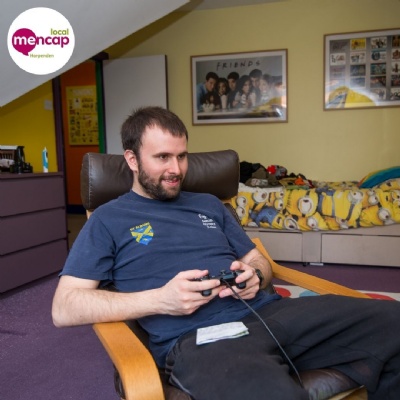The importance of Assistive Technology

What is Assistive technology?
Assistive technology, also known as AT, is any device or product that helps a person with a disability perform a task that would otherwise be difficult or impossible without help.
This can include any piece of equipment, product, or system that is used to increase, maintain or improve the functional capacities of people with disabilities.
It can reduce the need for long-term care and minimise the reliance on formal and informal carers.
Assistive devices range from simple, low technology devices such as walking sticks or adapted cups to high technology devices such as motorised wheelchairs and specialised computer software.
What are the benefits?
Examples of how assistive technology can have a positive impact on the health and wellbeing of a person include:
Enabling older people or people with disabilities to continue to live independently in their own home
- Monitoring the safety of a vulnerable person in their own home. Providing peace of mind for both themselves and their family
- Improved support for people with long term health conditions
- Increased choice, safety, independence, and control for service users
Who can it benefit?
There are many groups of people that can benefit from assistive technology.These include people with:
- Mobility Impairments
- Learning disabilities
- Deafness and hearing impairments
- Executive functioning difficulties
- Communication Difficulties
- Visual impairments
In social care, we use all sorts of different technology including environmental controls such as voice-controlled lights and doors, reactive technology such as bed sensors, epilepsy mats, falls sensors and water cut-off alarms, communication aids such as eye gaze, voice systems with symbols.
As well as aids to living such as Alexa, medication reminders and call systems.
Statistics
In terms of individuals, the number of people who need assistive technology makes up around 20% of the population, which equates to 13 million people in the UK.
Many people don’t understand the availability and possibilities that assistive technology can bring in helping people to maintain their independence and choice.
It’s always worth looking for a way that assistive technology can be used to solve a problem or difficulty!
What we offer
People with learning disabilities want to live full and active lives just like the rest of us.
Even the smallest amount of support can make a huge difference in improving independence and control.
We are able to offer a range of services to support people with learning disabilities and their families including advice, care and support, leisure activities and employment support.
Take a look at our advice and services page to see what we could do for you!
https://www.mencap.org.uk/advice-and-support/services-help-you
